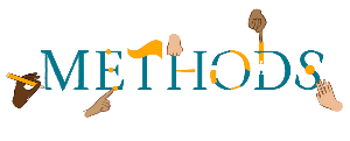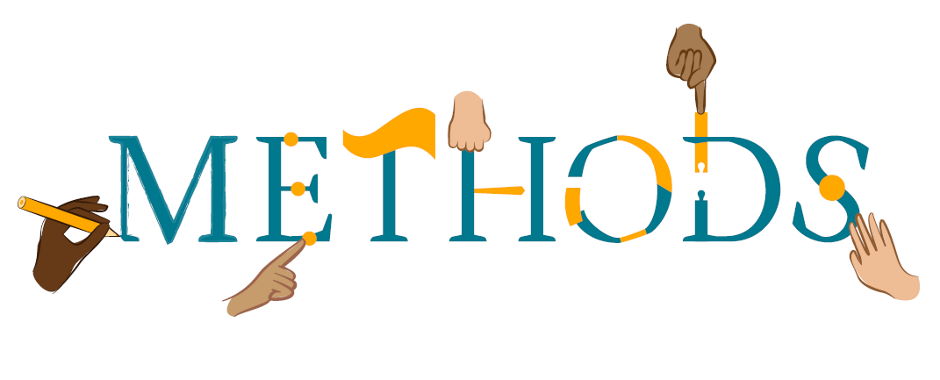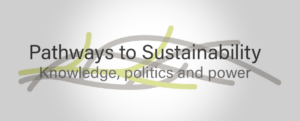What methods can help to ‘open up’ and ‘broaden out’ pathways to sustainability, revealing alternatives to one-track visions of progress and expertise?
Sustainability challenges – from Covid-19 to climate change, agri-food futures to urbanisation – require thinking carefully about the relationships between power, knowledge and action. Transdisciplinary methods can offer a way to make new connections between diverse forms of knowledge and action to challenge power.
To conclude a year-long series of events on Methods, we held an online methods ‘bazaar’ on 8 November 2021. The event aimed to be a space for early career researchers and those new to sustainability praxis from diverse countries and contexts to share experiences, and to learn from specific examples of transdisciplinary research in sustainability.
The event included a panel discussion with Andy Stirling, Loni Hensler and Dylan McGarry, followed by a series of parallel small groups (the ‘bazaar’), where participants could discuss particular methods with researchers who had used them. Video from parts of the event is available (see below).
Panel: methods and transdisciplinarity
The event opened with reflections and a dialogue between Andy Stirling, Loni Hensler and Dylan McGarry, drawing on their knowledge and experience of transdisciplinary methods.
Andy is co-director of the STEPS Centre, and has done extensive practical and theoretical work on methods and methodologies. This has included challenging assumptions about the role of evidence and knowledge in contributing to transformative change.
Loni discussed her work in the Grupo Investigación Acción Socio-Ecológica (Socio-Ecological Action Research Group), where she works collaboratively with other grassroots groups to strengthen processes of collective learning and participatory management for socio-ecological transformation and care for the commons.
Dylan is a scholar activist-pracademic multimedia artist. His work focuses on socio-cultural transformation, environmental justice, and developing pedagogies for empathy in the context of ecological citizenship, practice-based arts research and transgressive social environmental learning. Among his reflections, he discussed his work with Empatheatre, a theatre-based approach to transgressive social learning.
Sharing examples of methods in action
The opening dialogue was followed by a series of parallel sessions, in which a diverse group of invited participants shared their experiences of working with methods in particular contexts, and invited questions or comments on them.
The methods discussed included circles of dialogue of wisdom, serious games, digital ethnography, transformative learning tours, right relations, backcasting, Agency Network Analysis (ANA), the Mānoa Mashup Method, Multicriteria Mapping (MCM), theatre as a participatory method, Q Method in the context of Transformation Labs, and Photovoice.
Video recordings from some of these talks are shared in the playlist below.
Event: Pathways to Sustainability – Knowledge, Politics and Power
Methods will also be discussed at the final STEPS event on 8 December. The event reflects on the STEPS Centre’s work responding to multiple challenges around social justice and environmental sustainability, and looks forward to ongoing projects and future possibilities.
About the Challenging Research series
In a series of events entitled Challenging Research, we have asked critical questions on the way we use and think about methodologies in sustainability research.
Faced with multiple intersecting crises and long-term social and ecological problems, sustainability research is called to challenge power, revealing alternative pathways to diverse futures. But it is hampered by hidden assumptions about objective knowledge, market forces and disciplinary silos, an artificial boundary between action and knowledge, and pressures for research to narrow down its questions and reach single answers or ‘solutions’.
The Challenging Research series critically examines the roles of methods and methodologies in addressing these problems, through a series of conversations between researchers and others mobilising for change around the world.
The series has included events convened by the ESRC STEPS Centre (co-hosted by IDS and SPRU, University of Sussex), ARIN (African Research and Impact Network), and events in Mexico coordinated by the NGO Umbela Transformaciones Sostenibles, co-coordinated by LANCIS-IE-UNAM, and in association with IIMAS-UNAM and the School of Sustainability at Arizona State University (which comprise the North America Hub of the STEPS Global Consortium).
About Methods: OUR THEME FOR 2021
 Many methods offer ways to link knowledge and action for sustainability. But there are intense pressures to close down and narrow the way knowledge is produced and used for instrumental ends.
Many methods offer ways to link knowledge and action for sustainability. But there are intense pressures to close down and narrow the way knowledge is produced and used for instrumental ends.
What methodological assemblages, frameworks, tools and associated ways of being could help challenge these pressures, open up to more perspectives and participation in research, and allow us to pursue more plural pathways to sustainability?

